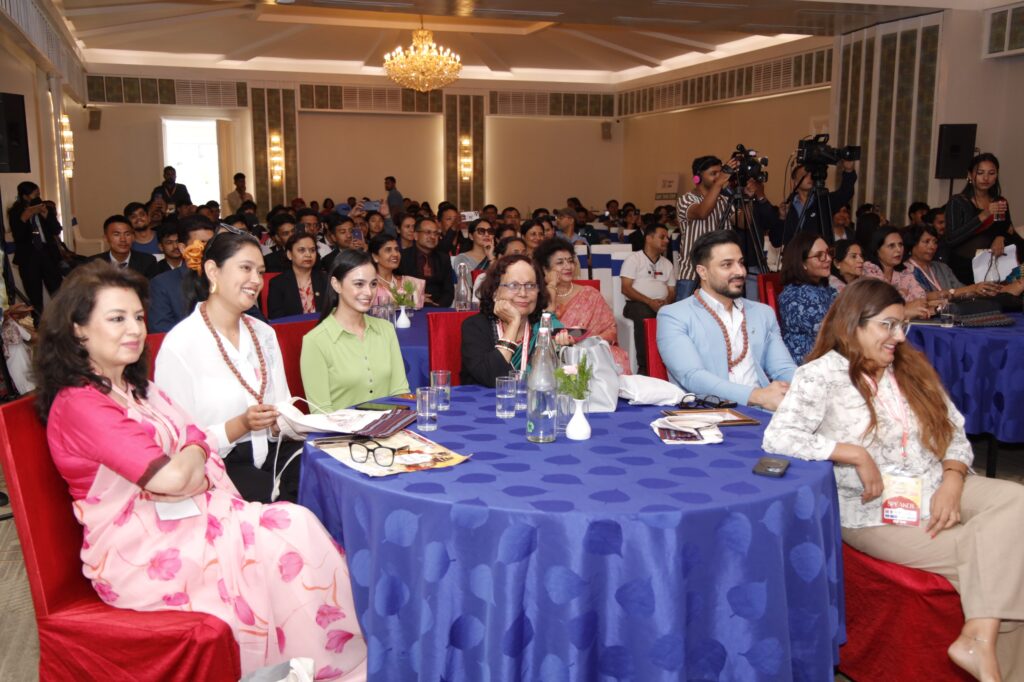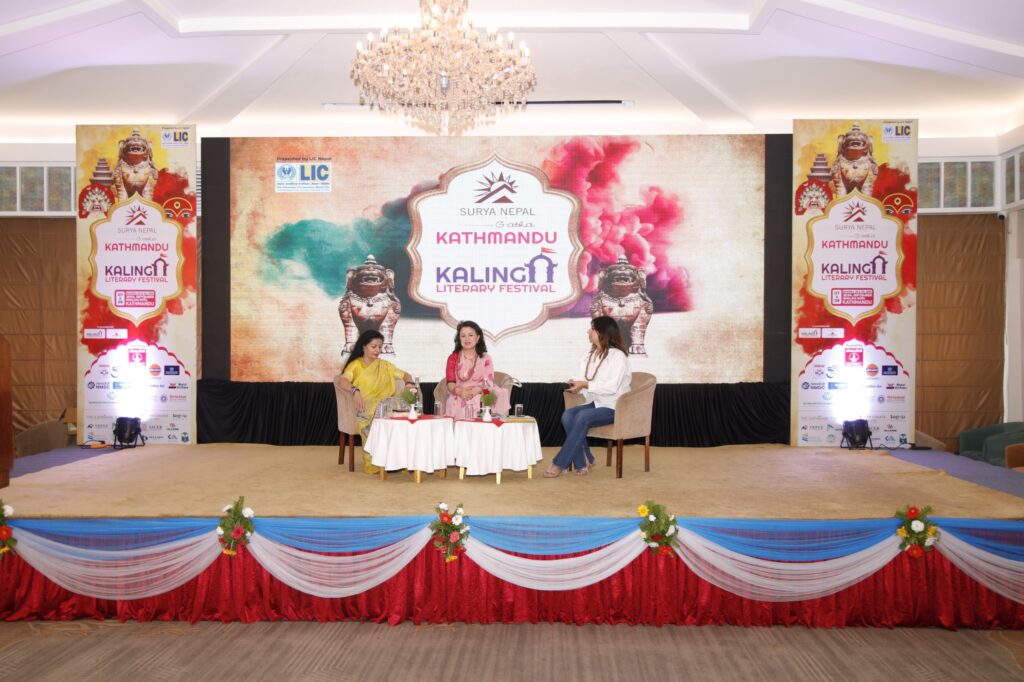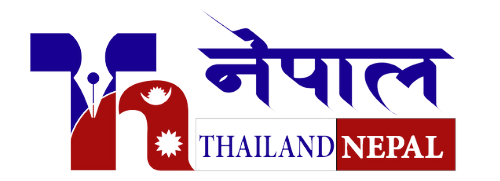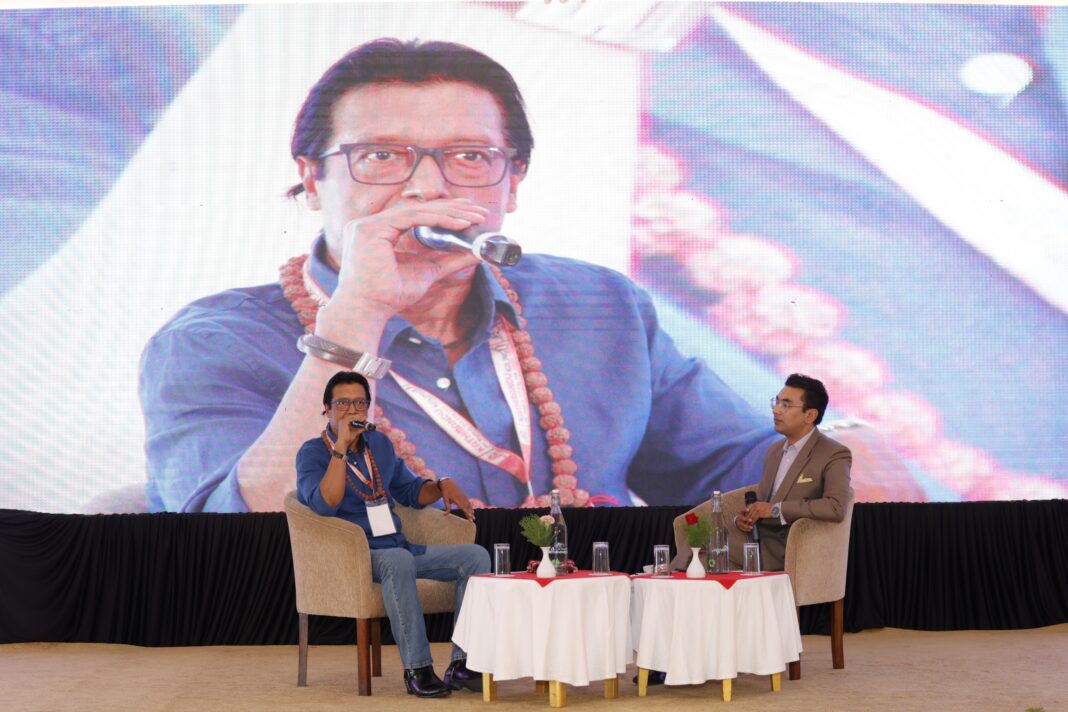Kathmandu, Bhadr 23, 2081 – The third edition of the Kathmandu Kalinga Literary Festival (KLF) concluded successfully at Hotel Himalaya in Lalitpur. The two-day festival, themed “Nepal: The Gateway to Asian Art, Culture, and Literature,” featured more than 50 insightful sessions and brought together over 300 writers, poets, and cultural experts from Nepal, India, Bhutan, Sri Lanka, and other South Asian countries. The event concluded with the announcement that the fourth edition of the festival will take place on September 13-14, 2025.

During the festival, legendary poet Dr Bhuwan Dhungana was honoured with the prestigious Yashaswi Sahitya Samman. At the same time, Lakshmi Murdeshwar Puri, Sanjeev Sanyal, and Achyuta Samanta were also recognized with the Yashaswi Samman. The Yashaswi Book Award 2081 was presented to six distinguished books across five categories, with each recipient receiving a cash prize of NPR 20,000.
The awardees include:
- Devvrat for his poetry collection “Aswasthamako Nidharbata Bagmati Bagchha”
- Muna Chaudhary for her fiction “Laar”
- Momila Joshi and Arun Gupta for their nonfiction works “Prashnaharu Ta Baki Nai Rahanchhan” and “Sanskriti Chintan,” respectively.
- Rohini Rana for “The Nepal Cook Book” (English)
- Yagyaraj Upadhyay for his research work “Kali-Karnaliko Lok Sahitya Tatha Sanskriti”
The festival was marked by vibrant discussions and performances that celebrated the rich literary and cultural heritage of Nepal and South Asia. Gaining prominence as a key hub for literary and cultural dialogue, the festival was a platform for intellectual exchange and creative expression.

Festival Director and Founding Member Ranjana Niraula noted, “The Kathmandu Kalinga Literary Festival celebrates the longstanding cultural ties between Nepal, India, and South Asia, while offering a platform for deep discussions on the evolution of global cultures.” Festival co-organizer Rashmi Ranjan Parida highlighted the historical bond between Nepal and India, stating, “It’s hard to pinpoint when the shared journey between Nepal and India began, but it continues today, fostering a stronger connection through literature and culture.”
One of the key highlights was the session titled “Life Dedicated to Nepalese Films”, where celebrated Nepali actor Rajesh Hamal discussed the evolution of the Nepali film industry. In conversation with Rupesh Shrestha, Hamal expressed his optimism for the future of the Nepali film industry, noting that while challenges exist, the industry is progressing and carving its path.
In another session, Dr Abhi Subedi, Uday Prakash, and Rohini Rana explored Nepal’s role as a gateway to Asian art, culture, and literature. Dr Subedi emphasized the historical significance of architecture inspired by faith and religion, while Rohini Rana highlighted the importance of food in culture.
Former Indian Ambassador to Nepal, Ranjit Rae, spoke during the session titled “Rethinking Development and Diplomacy in the Digital Age.” He reflected on the significance of diplomacy and credibility, stressing the importance of people-to-people relationships in shaping government policies and influencing Nepal-India ties.
The festival also hosted sessions focusing on emerging literary talents, film-making, and creative storytelling. Sessions such as “The Art of Storytelling in Film” by director Sujit Bidari and “Voices of Tomorrow: Emerging Literary Talents of South Asia” featuring Ranjan Adiga, Badri Narayan, and Mahendra P. Joshi sparked discussions on the future of literature and film in South Asia.
Over the two days, the festival hosted 57 sessions, covering a wide range of topics, including Diaspora Writing, Child Psychology in Children’s Literature, The Role of Women in Literature, and The Future of Civilizational Dialogue.
The Kathmandu Kalinga Literary Festival was organized in collaboration with Yashaswi Pragya Pratisthan and Himalayan Diary Pvt. Ltd., with Surya Nepal Gatha as a supporter and Life Insurance Corporation (LIC) Nepal as the presenting sponsor.


